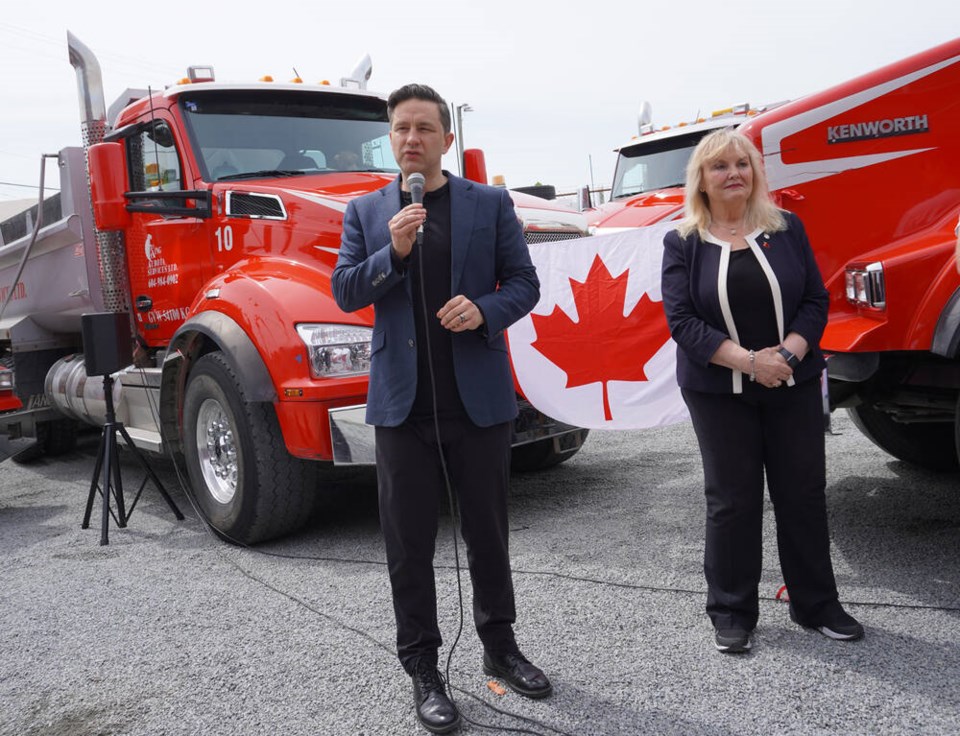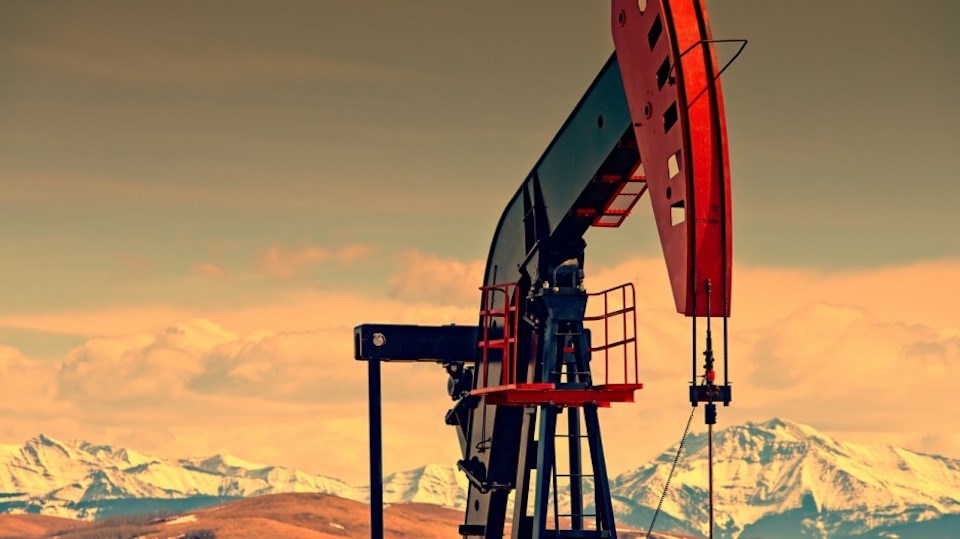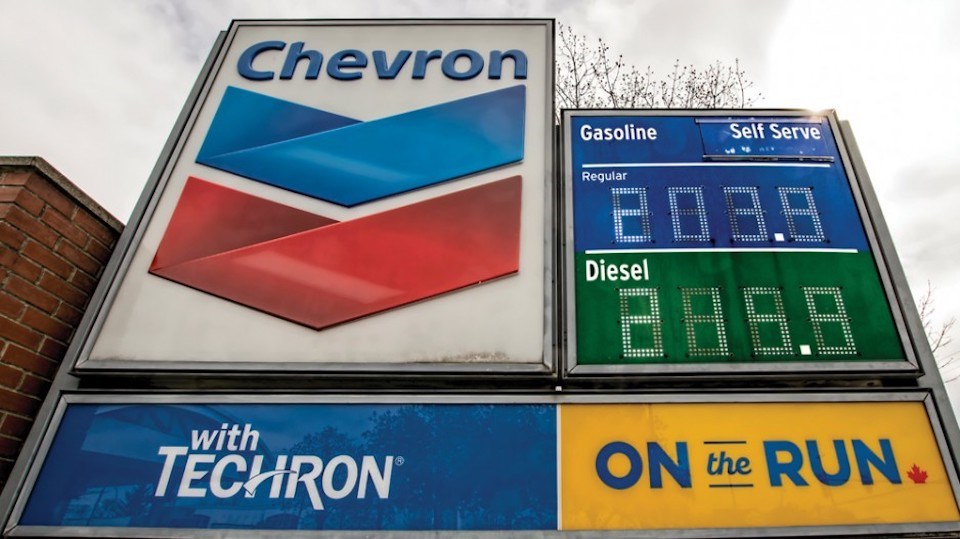In the year leading up to June 2022, average gasoline prices climbed 55 per cent across Canada, part of a wave of inflation that raised the cost of nearly everything from rent to food.
According to a new analysis published Wednesday, a $0.73 jump in gasoline prices over that period was almost entirely driven by the global oil market — not carbon pricing.
Jessica Kelly, a senior policy advisor with the International Institute for Sustainable Development (IISD) and the report’s author, said the analysis was a chance to look back at a record inflationary experience and “try to cut through the noise.”
“It’s really trying to debunk the narrative that climate policy is impacting affordability,” said Kelly.
How do Canada’s carbon taxes work?
At the federal level, there are two carbon pricing systems — an output-based pricing system, which gives price incentives to industrial emitters to reduce carbon emissions, and a fuel charge.
Ottawa’s fuel levy was introduced in 2019, and has since added 17.6 cents to the cost of a litre of gasoline. The federal system applies to every Canadian jurisdiction outside the three territories, Quebec and British Columbia, which have their own carbon pricing policies.
In B.C., residents are expected to receive a tax credit that will rise with the price of carbon until it reaches $170 per tonne in 2030. By 2030, 80 per cent of B.C. households are expected to receive a full or partial credit.
Those climate action tax credits are aimed at helping people with low and middle incomes offset their share of B.C.’s carbon tax, which is used to pay for clean energy projects like charging infrastructure, as well as other green services and programs meant to tackle climate change.
A political wedge issue
At both the provincial and federal level, Conservative opposition parties have claimed the price of carbon hurts Canadians struggling to pay their bills. Conservative Party of Canada Leader Pierre Poilievre has long promised to “axe the tax” — a threat that escalated into a non-confidence motion in March in a failed bid to topple the government and trigger an election.
John Rustad, leader of the Conservative Party of BC, has likewise pledged to cancel B.C.’s carbon tax, and in June, he told the Globe and Mail that the science around human-caused climate change is an unproven “theory” and “not even a crisis.”
Poilievre and the Liberal government have both used a 2023 Parliamentary Budget Office (PBO) report, claiming it vindicates their position.
That report found eight out of 10 households would ultimately benefit from the carbon tax when the rate reaches $170 per tonne. It also found that once the carbon tax's impact on employment and investment were taken into account, by 2030-31, households would see net losses of $2,773 in Alberta and $1,820 in Ontario. The report found lower-income households would continue to benefit from the policy.
Several green think tanks slammed the PBO report for failing to account for the cost climate change would have on Canadian society. The Canadian Climate Institute said the PBO’s modelling assessed broader economic costs of carbon pricing in a “misleading way” that failed to consider the economic benefits of carbon pricing and the costs of climate inaction.
“Here’s another fact: Canadians already pay roughly $720 a year for climate-related damages. Those costs will keep rising (to around $2,000 a year by 2050) as climate impacts get more extreme,” said the think tank in a statement last year.

The PBO report was thrown into question this spring. In May, Parliamentary Budget Officer Yves Giroux told CBC News hat it had made an “inadvertent error” by including the industrial carbon pricing into its fuel charge calculations.
The PBO said it would re-run its modelling to gauge how the change would impact the cost of the carbon tax under previous estimates.
At the time, Liberal MP and parliamentary secretary Ryan Turnbull sent a letter to Giroux urging him to correct the public record.
"With great respect, correcting the record on your analysis of the fuel charge is necessary to maintain the integrity of your office," Turnbull said.
Abandoning carbon pricing would be more costly, say economists
Meanwhile, a group of more than 100 economists from across the country released an open letter in March backing carbon pricing as an economically sensible policy to cut greenhouse-gas emissions at a “low cost” to Canadians and businesses.
“Canada could abandon carbon pricing and still hit our climate targets by using other types of regulations and subsidies — but it would be much more costly to do so,” it reads.
“Unfortunately, the most vocal opponents of carbon pricing are not offering alternative policies to reduce emissions and meet our climate goals. And they certainly aren’t offering any alternatives that would reduce emissions at the same low cost as carbon pricing.”
About 90 per cent of revenues generated by the federal carbon tax are returned to households as rebates, according to the letter. Most families, it adds, get more money back in rebates than they pay under the carbon tax. That’s especially true for low- or medium-income households, and rural residents, who get an additional rebate.
“In other words, the policy is designed to ensure it does not raise the cost of living for most Canadians,” states the letter.
Was the carbon tax responsible for soaring gasoline prices?
In 2021, the world’s economy was recovering from the COVID-19 pandemic — businesses were reopening, industry was ramping up production and people were spending money.
As demand for energy soared, supply challenges in several OPEC-plus countries led to tight oil and gas markets, said Kelly.
When Russia launched its full-scale invasion of Ukraine in 2022, the pressures mounted, leading to “skyrocketing international oil and gas prices,” she notes in the IISD report.
In 2022, global expenditures on energy consumption spiked 20 per cent higher than the previous five-year average, according to data from the International Energy Agency cited in the report.

By June of that year, the average cost of gasoline in Canada had climbed to $2.07 per litre, 55 per cent higher than a year earlier, Statistics Canada data shows. Diesel prices soared even higher, spiking 80 per cent in some parts of the country, notes the IISD report.
But while the carbon tax rose over that same period, Kelly found only $0.03 of the $0.73 year-over-year increase in the cost of a litre of gasoline was attributed to the carbon tax.
In other words, only 4.1 per cent of the increase in gasoline prices was due to carbon taxes. The remaining $0.70-per-litre increase “was driven by international pricing dynamics,” Kelly writes.
“In Canada, we’ve sort of grown accustomed to fluctuating gas prices. We’ve somewhat accepted the argument that summer gas costs more than winter gas,” said Kelly.
“But when we take a step back… energy prices are reaching levels that are hard to plan for.”
Households that wean off fossil fuels will save money, IISD report says
Between February 2021 and June 2022, Kelly calculated energy prices drove 33 per cent of Canada’s overall inflation. Beyond heating bills and the price at the pump, energy inflation drove up the cost of everyday needs like groceries, clothing, furniture, restaurants, and “even the buildings we live in, whether rented or owned,” Kelly said.
“It’s hard to place blame on invisible market forces. It’s much easier to place blame on a specific policy,” she said.
Outside of measuring the impact of Canada’s carbon taxes on fuel prices, the report also charts out how much Canadians could save should they become less reliant on fossil fuels.
The report cites recent research from the Canada Electricity Advisory Council that shows if electricity grids were weaned off fossil fuels and made net-zero by 2050, Canada could save up to $15 billion annually. That would cut the average cost of household energy bills by $1,500 per year.
Kelly said it used to be that wind and solar were expensive to install and get going, and heat pumps and electric vehicles were out of reach for many Canadians. Now, she said, the longer people wait to transition to these forms of energy, the more money they’re going to lose.
“Wind, solar — I think people are still waking up to the reality that these forms of energy are cost competitive with fossil fuels,” Kelly said.
With files from the Canadian Press




